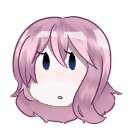Hello,
I've been recently studying another language, Spanish, but have difficulty with rolling my r's.
I can fake it with a sound from deep in my throat, but my searching tells me that the trilled r is made by the vibrating of the tongue (naturally, not manually).
I would like to ask if anyone can either tell me how to accomplish this or know of any good tutorials/articles/et cetera to fully grasp how to do it. I also extend this to any language that has this alveolar trilled r such as Italian.
This article, "10 Amazing Tips For Pronouncing The Letter 'R' In Spanish"'s number 9 (quoted below) helped me, but I'm not sure I'm pronouncing it quite right yet.
I don't know if it's because I'm doing it wrong or just because it's going to take practice, or both.
I do not think I'll have as much trouble with the other sounds in Spanish, especially given the fact that many sounds in Spanish are similar to that of Japanese, but if there's something I ought to be aware of, feel free to let me know.
Have some lIlI sprites, since they're so cute ->


I've been recently studying another language, Spanish, but have difficulty with rolling my r's.
I can fake it with a sound from deep in my throat, but my searching tells me that the trilled r is made by the vibrating of the tongue (naturally, not manually).
I would like to ask if anyone can either tell me how to accomplish this or know of any good tutorials/articles/et cetera to fully grasp how to do it. I also extend this to any language that has this alveolar trilled r such as Italian.
This article, "10 Amazing Tips For Pronouncing The Letter 'R' In Spanish"'s number 9 (quoted below) helped me, but I'm not sure I'm pronouncing it quite right yet.
(And no, I'm not literally sounding like a motorcycle each time I try to say a Spanish word with "rr", but it helps me get a feel for it for imitating it after I do the "revving-up motor" sound.)9. Alternatively, relax and pretend you're a child making the sound of a revving-up motor.
I don't know if it's because I'm doing it wrong or just because it's going to take practice, or both.
I do not think I'll have as much trouble with the other sounds in Spanish, especially given the fact that many sounds in Spanish are similar to that of Japanese, but if there's something I ought to be aware of, feel free to let me know.
Have some lIlI sprites, since they're so cute ->










